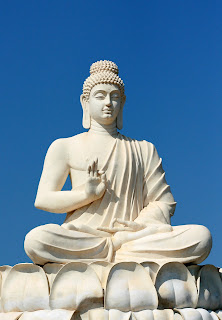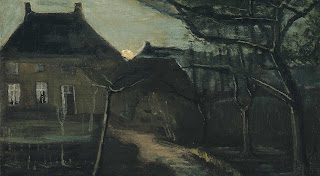Killings by terrorism
arouse much more attention and emotions than, for instance, the much larger
numbers of people killed by car drivers, bacteria and viruses. A combination of
causes may be at work here.
ABSTRACTION
Not many feel affected
by abstractions. Therefore, large numbers of traffic incidents don’t evoke
emotions like single incidents do.
MEDIA
Because traffic
accidents happen so often, the media reduced paying attention to those daily
killings on the road. They don’t see such killings as news anymore.
REMOTENESS
Most of the 1.2 million
traffic deaths happen in the Third World, whereas western media focus on what
happens in the west and reach audiences in the Third World. Third World media reach much less western
audiences and perhaps even focus less on traffic deaths.
PURPOSE
It seems that the
intentional killing by terrorists evokes widespread attention and emotion. Car
drivers don’t kill on purpose and therefore evoke less attention and emotion.
But criminals also kill on purpose and yet evoke less attention and emotion
than terrorists do. Terrorists differ from car drivers and criminals in that
they kill to install fear and uproot the societal system, the social balance,
the status quo.
US-THEM 1
Especially Muslim
terrorists are seen as foreigners attacking westerners, as ‘them’ attacking
‘us’, in order to install fear from the outside and uproot the societal system,
the social balance, the status quo. Most killing by car drivers and criminals
do not come from the outside.
US-THEM 2
But also within the
west there are us-them divides that do not lead to extreme attention and
emotions drawn by terrorists. One of the biggest gaps in the Amsterdam society
is between bikers and car drivers. Bikers behave in anarchistic ways and cars
kill bikers. They have a clear-cut us-them divide. In fact, many at both sides
fear or hate the other side.
Neveertheless, hardly
any traffic accident raises much attention and emotion by the media and the
local government. But the general public are very much aware and concerned
about the ongoing killing on the roads. This us-them divide between the general
public on the one hand and media and government on the other is yet another one
in the Netherlands that does not raise fierce attention and emotion. Therefore,
us-them divides in themselves do not seem to be a convincing explanation of the
widerspread and fierce attention paid to terrorists.
GOVERNMENTS
Some governments
welcome external enemies in order to rally the population and keep their
attention away from internal troubles. Terrorists provide excellent
opportunities to rally the people. Some governments have perhaps even
facilitated such opportunites. Research has uncovered examples of such
manipulations.
SECRET SERVICES
Secret services welcome
any fear for external enemies, hoping more breaches of privacy protection will
legalized or secretly introduced. Reasons for mobilizing the population against
an external enemy are highly welcomed and perhaps even created by the some secret
services. Research has uncovered examples of such manipulations.
ARMIES
Army leaders welcome
fear for external enemies, hoping next military action will be started. Reasons
for mobilizing the population against an external enemy are highly welcomed and
perhaps even created by the somke army leaders. Research has uncovered examples
of such manipulations.
ARMS
Arms producers welcome
any fear for external enemies, hoping next war will come. Reasons for
mobilizing the population against an external enemy are highly welcomed and
perhaps even created by some arms producers. Research has uncovered examples of
such manipulations.
SUMMARY OF EXPLANATIONS
As governments, secret
services, army leaders and arms producers may see chances to benefit from
Muslim terrorist attacks, they may tend facilitate widespread attention and
emotions. Moreover, such attacks are easier to absorb by the public than
abstract numbers and are therefore attractive for media that seek audiences.
Western populations are even less interested in abstract numbers of road
accidents in non-western societies. Many people get more aroused by intentional
killing than by unintentional killing, while disregarding the numbers of
casualties in themselves. The primary us-them instinct is especially strong
when it comes to terrorists with a foreign background.
POLICY
As common citizens we
may notice that our insticts, media and governments create in us attention and
emotions not corresponding to the distribution of real dangers, such as
expressed in numbers of casualties. We may urge governments to apply resources
according to the real distribution of such dangers.


















